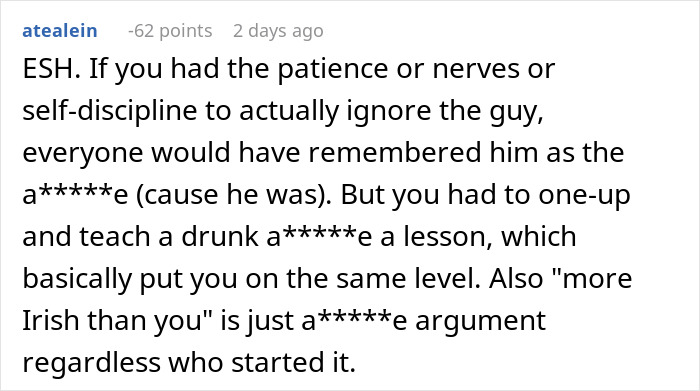Almost every country has stereotypes about its people. Americans are dumb, the British like to eat crumpets and drink tea, and the Irish are drunkards who love starting fights. Why did I name these three specifically? Well, because they’re particularly relevant to this story.
One British-Irish bloke took to Reddit to express his frustration about a recent encounter with an American. The guy kept pestering the bloke with British stereotypes, claiming he has the right to do so because he’s of Irish ancestry. Unfortunately, that only lead to an epic Irish-off, after which the bystanders blamed the author for being a jerk. So he went looking for vindication online.
A man kept throwing insults based on stereotypes at a British guy, justifying it by having Irish ancenstry

Image credits: mstandret / envatoelements (not the actual photo)
But the guy wasn’t having any of it because he himself was Irish as well
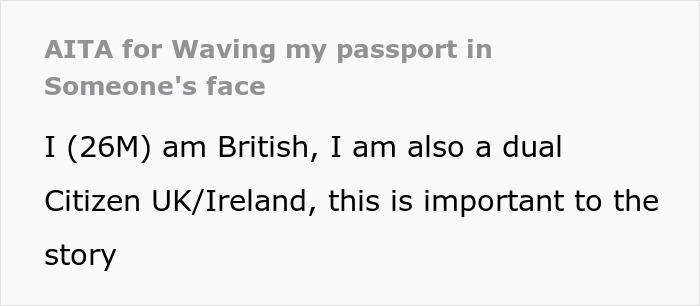
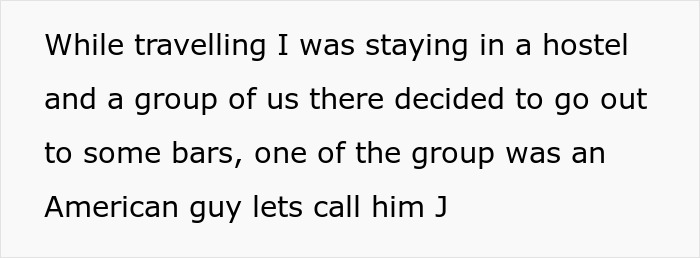
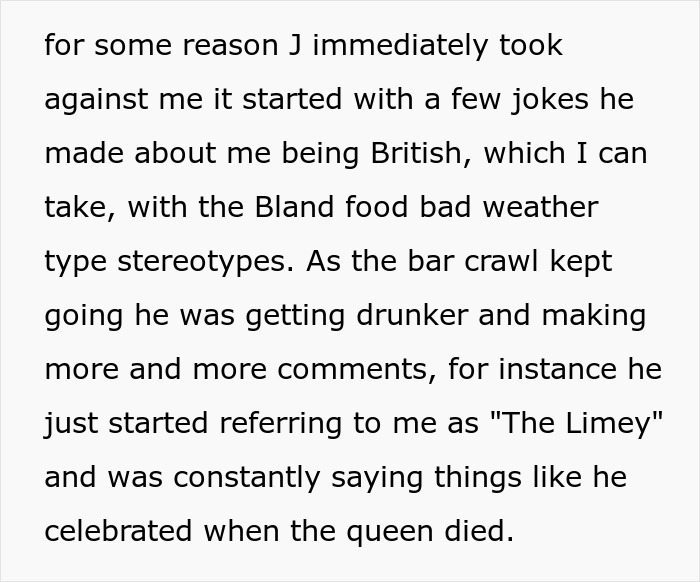
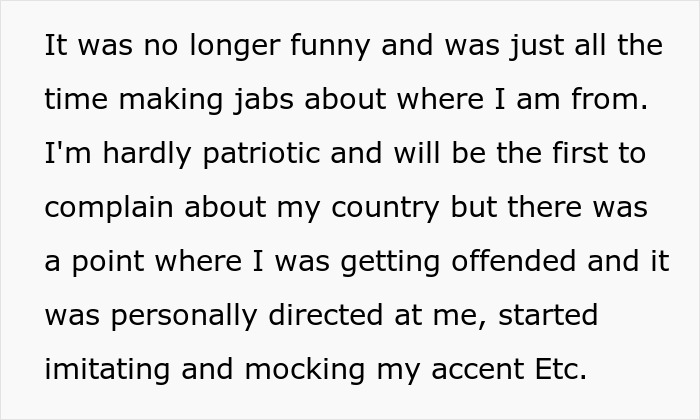
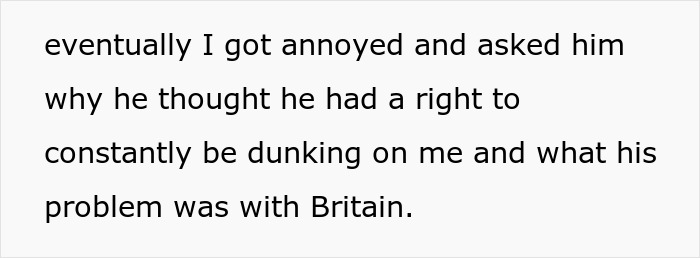
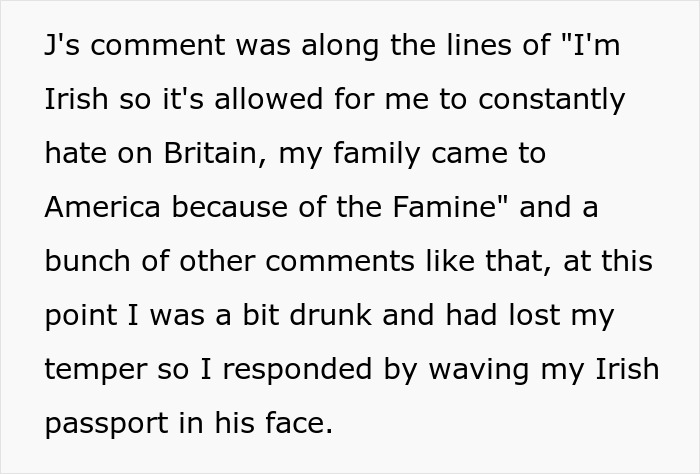
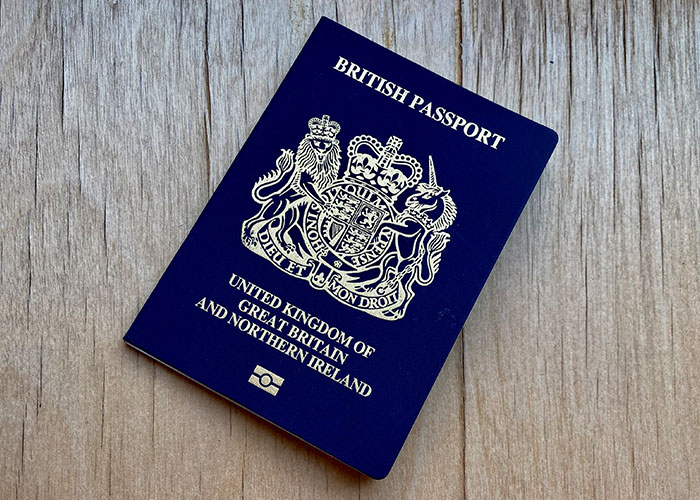
Image credits: Evisa Express / flickr (not the actual photo)

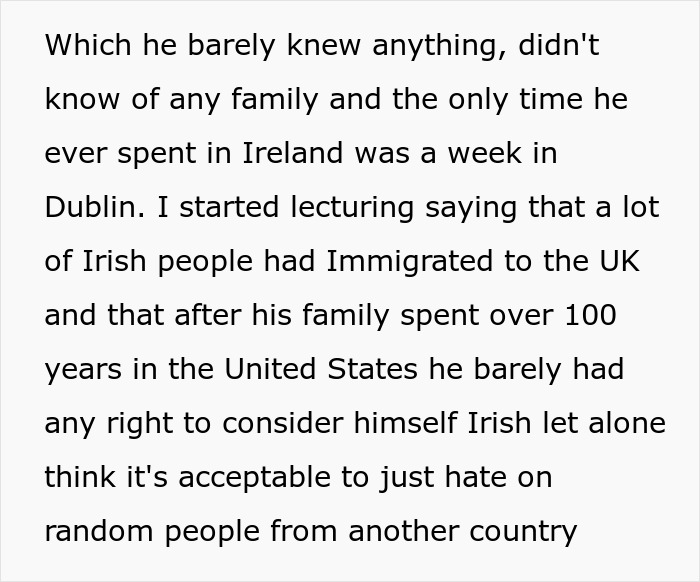
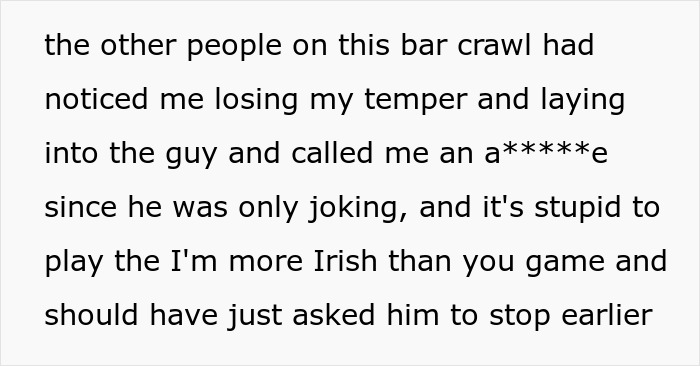
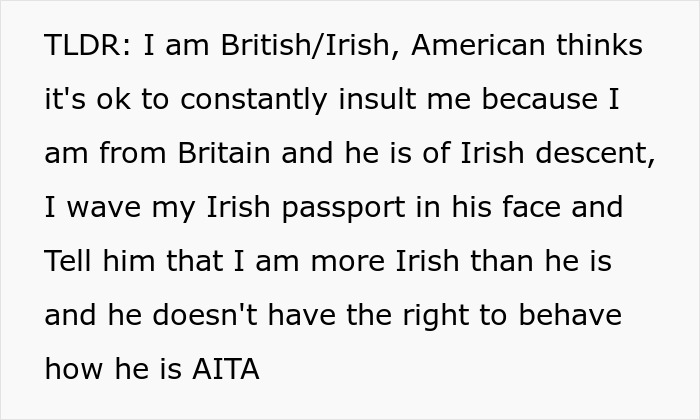
Image credits: Kindly-Discussion270
Most Irish people agree that Americans of Irish ancestry have a lot in common with them
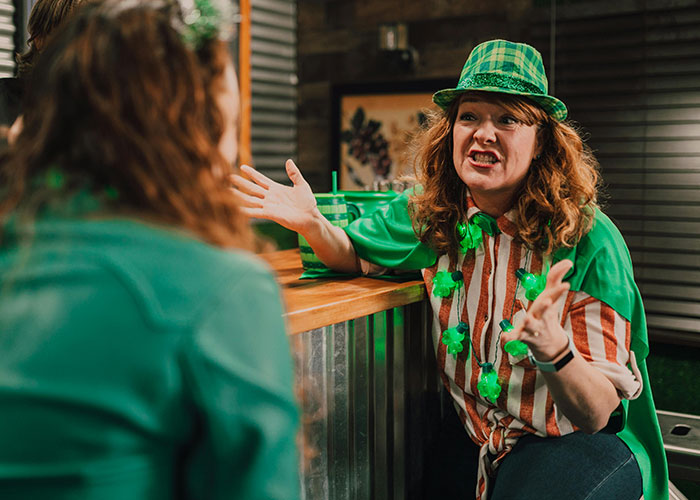
Image credits: RDNE Stock project / pexels (not the actual photo)
Many people in the U.S. come from Irish ancestors. Over 31.5 million claim to have Irish ancestry, making one in 10 Americans of Irish descent. Irish Americans are only second in numbers to German Americans; they proudly take first place at 43 million.
However, Americans calling themselves “Irish” has been a longtime debate. Does having Irish ancestry count as being Irish? Shouldn’t they just call themselves “Americans?” According to one poll, Americans think that they have a great deal in common with the Irish. And, thus, perhaps deserve to call themselves Irish.
59% of Americans with Irish ancestry say they are similar to Irish people in Ireland. The Irish are mostly on the same page too, with 55% agreeing. But when it comes to who has the right to call themselves “Irish,” it’s a bit trickier.
Those whose both parents are Irish are safe, as 61% of Irish people say it’s okay for Americans to describe themselves as “Irish.” They’re less welcoming to those who have only one Irish parent, one grandparent, or one grand grandparent. If a person has only one grandparent, 51% of Irish people say it’s okay to describe yourself as ” Irish-American.”
Irish ancestry is still important to many Irish Americans
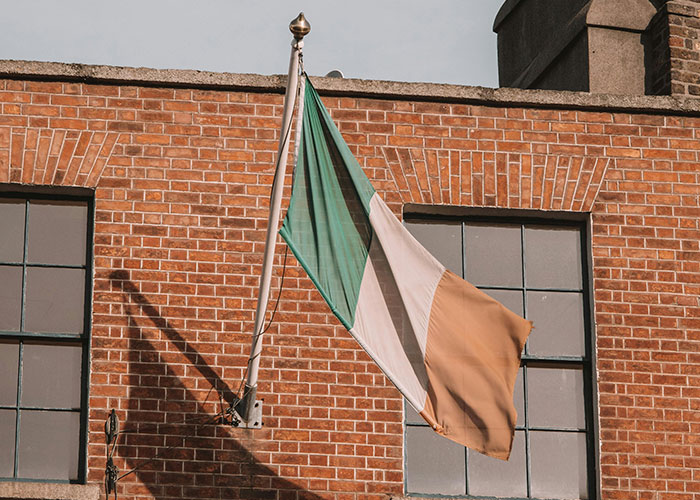
Image credits: Joaquin Carfagna / pexels (not the actual photo)
Perhaps the problem is semantics – what Americans actually mean when they say “I’m Irish.” In reality, most Irish Americans don’t want to describe themselves as only “American.” The same poll showed that 40% of those who say they have Irish ancestry feel like their heritage is at least somewhat important to them.
Many don’t claim to be “Irish,” but would like to call themselves Irish-American. Some of them travel to Ireland looking for their roots, visiting their ancestors’ homes, and wanting to connect to the homeland of their grandfathers or grand grandfathers.
When Rosita Boland, a writer for The Irish Times traveled to Boston and spoke to those identifying as Irish-American, she found that when Americans say they identify with the Irish, they mean those who came and settled in the U.S. many years ago. Not the Irish people living in Ireland. “Ireland itself, the country, is the abstract, romanticised receptacle of dreams and green fields, and the place that will soothe a lifelong ache,” she writes.
People associate certain traits with certain nationalities. For many Americans, being of Irish descent means that you’re a hard worker. “The Irish faced oppression abroad as well as at home, but powered through the stereotypes to dominate both US law enforcement and the mafia,” a journalist and an Irishwoman living in New York Sarah Moran writes. “Claiming Irish heritage allows one to covertly say: ‘I came from nothing, I worked my way up.'”
America is a melting pot of different cultures, races, ethnicities, and nationalities. If you’re not of Indigenous ancestry, saying you’re an American doesn’t exactly describe your ancestry. When trying to describe the American identity, historian Philip Gleason said: “The universalist ideological character of American nationality meant that it was open to anyone who willed to become an American.”
“He’s not ‘Irish,’ he’s a Yank,” people pointed out in the comments, rallying behind the author
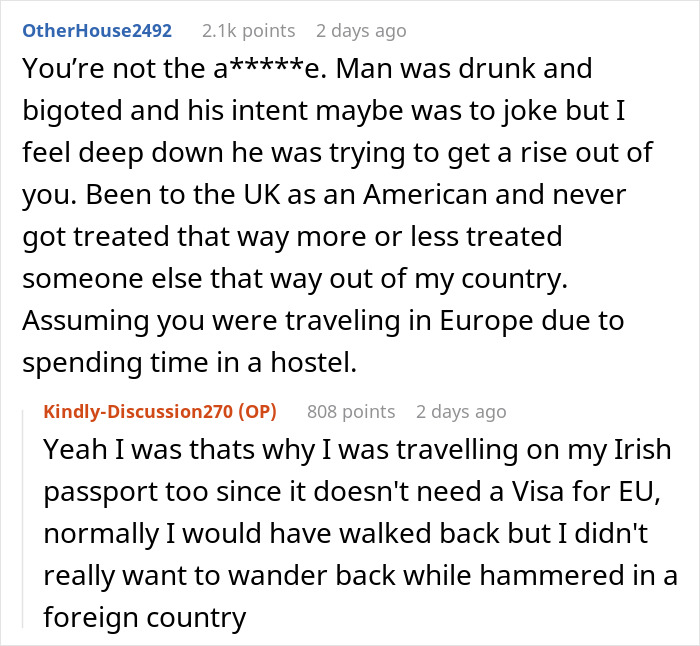
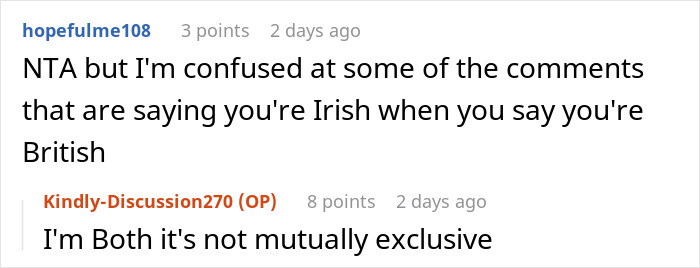
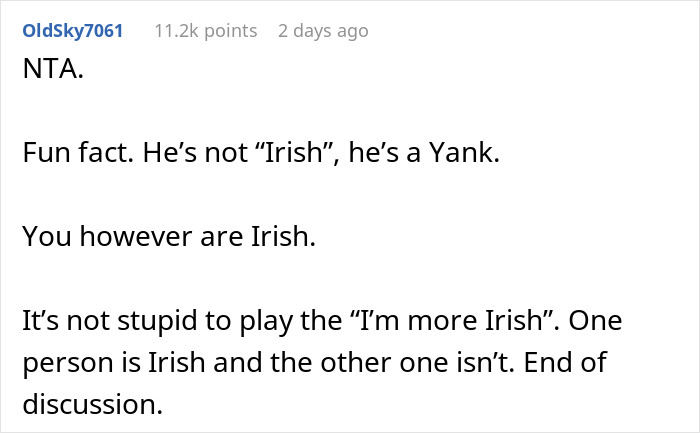
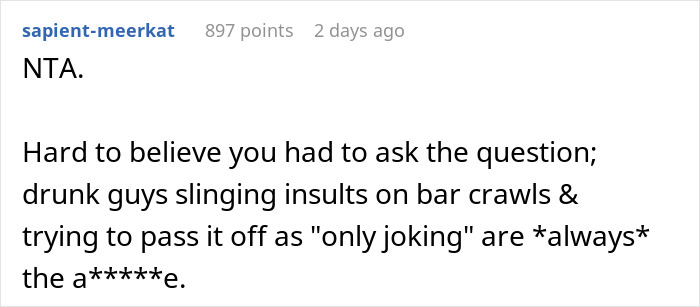
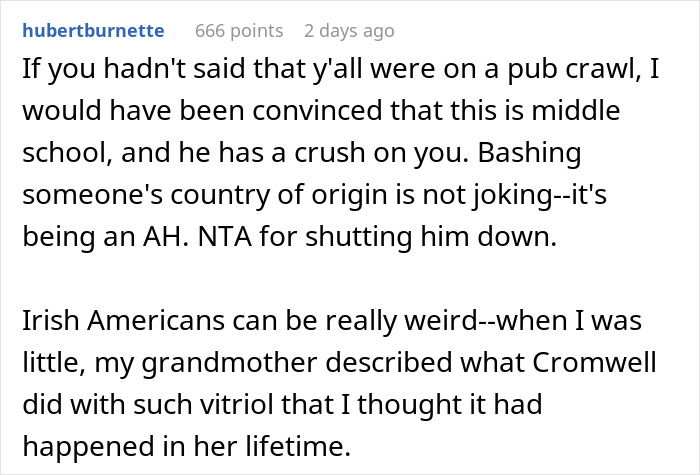

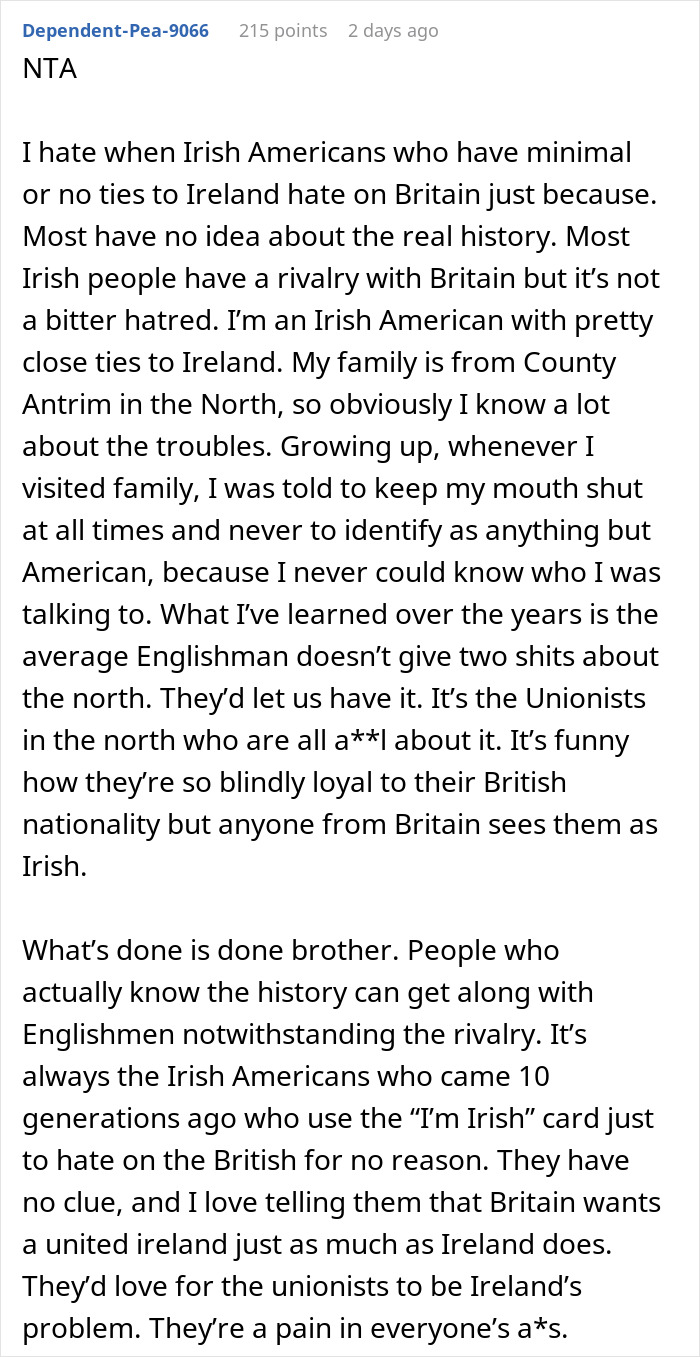
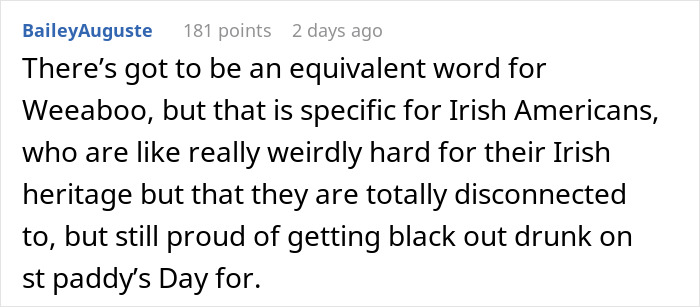
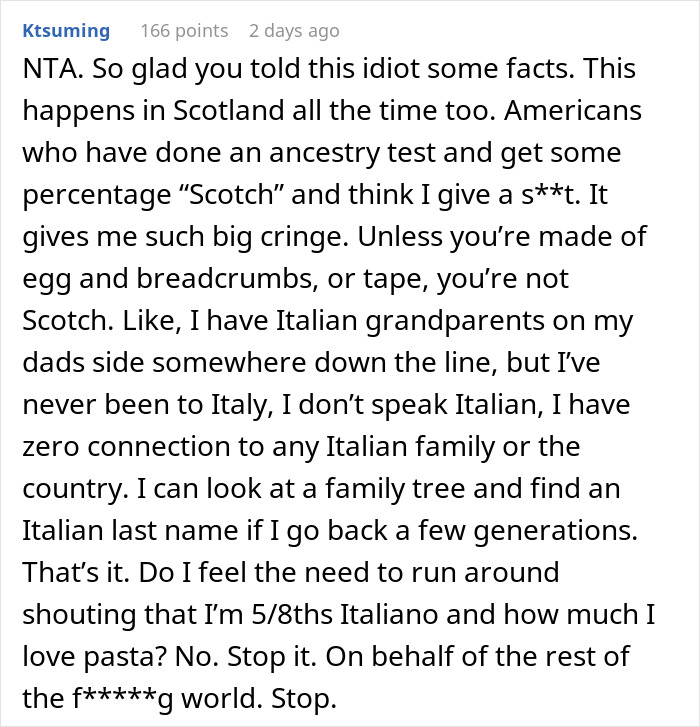

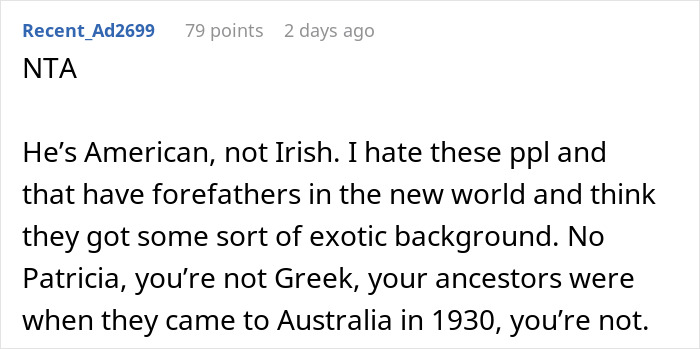
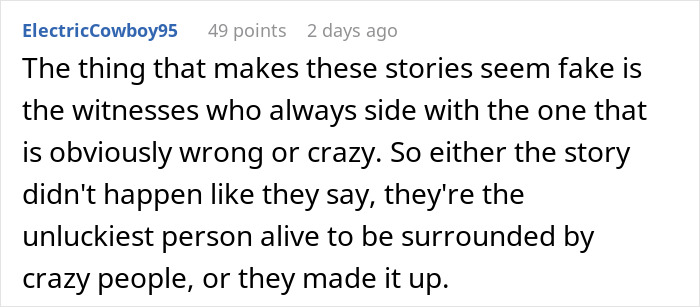
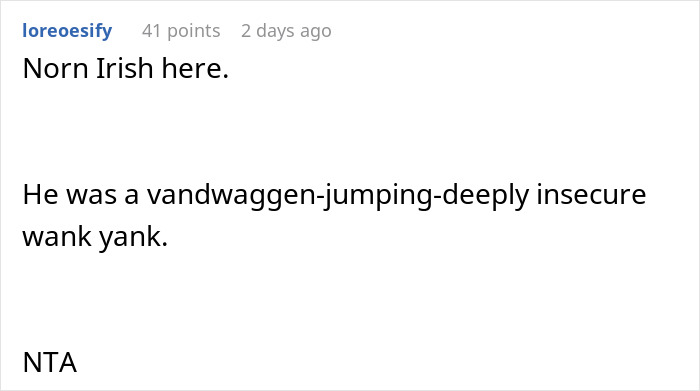
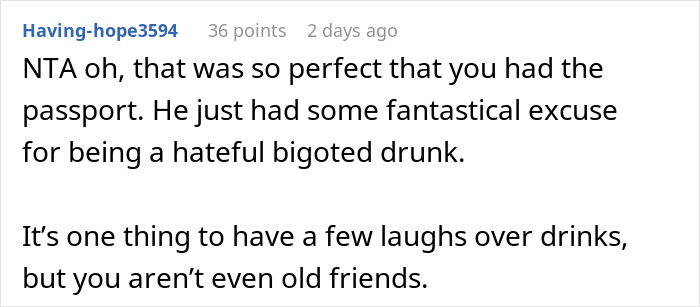

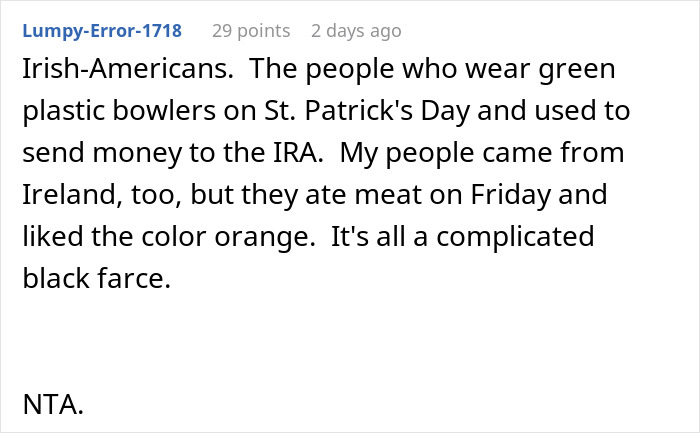
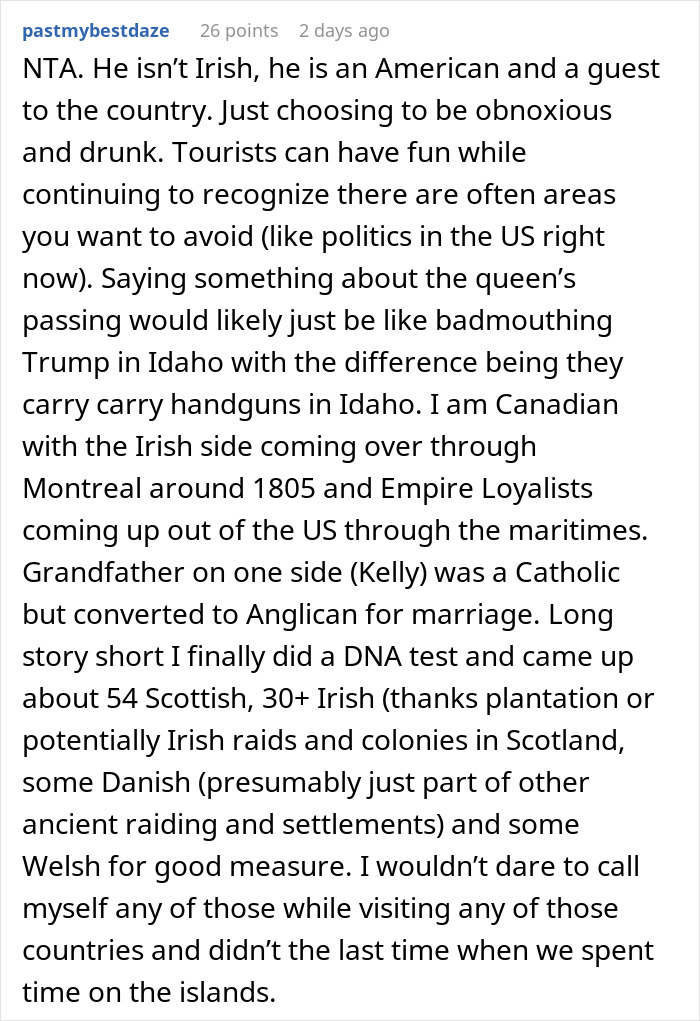


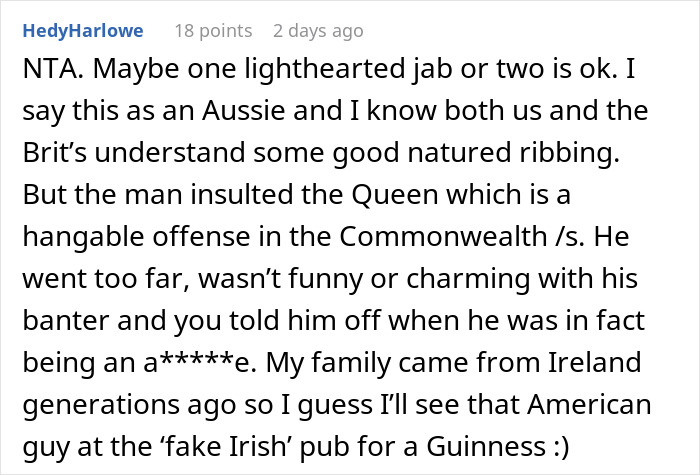

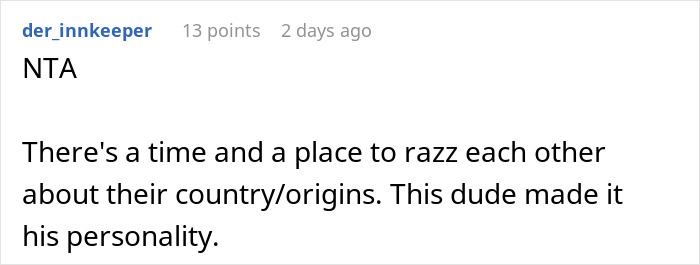

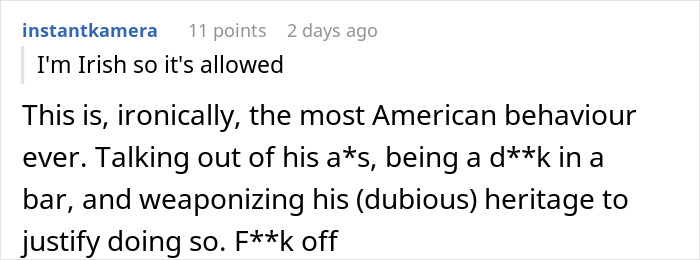
Other commenters, however, thought that both blokes were being jerks here



